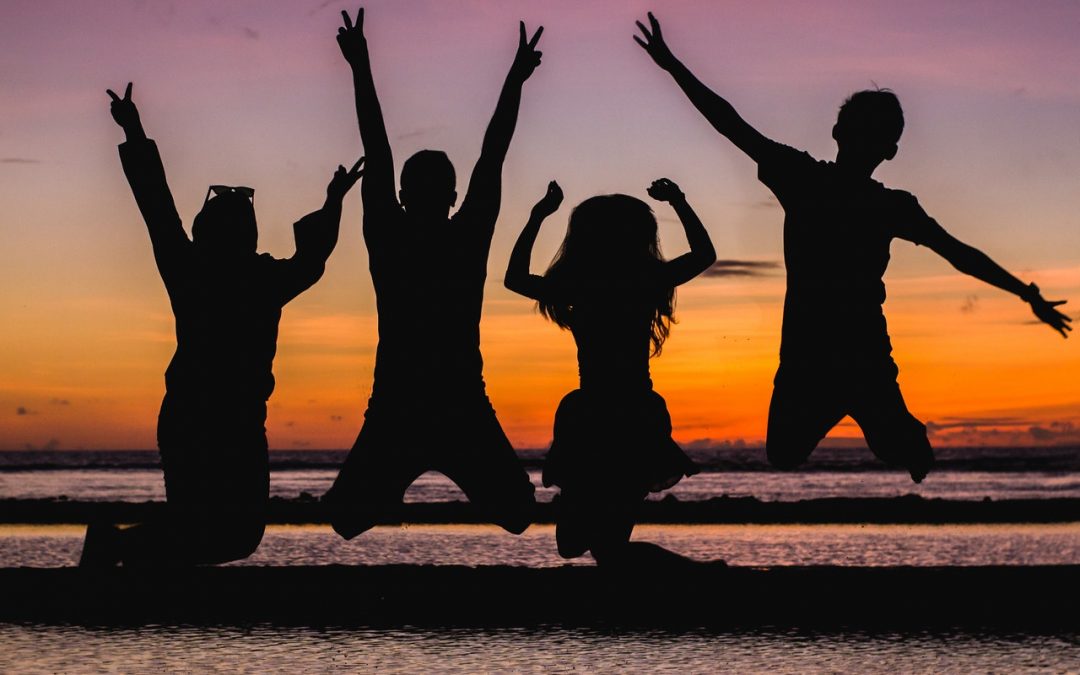“I don’t really feel the same without summer camp. That’s my second family, my home away from home. Being there makes me feel like a normal kid, because everyone is doing the same things I do.”
Those powerful words by 13-year-old Olivia Klassen about Camp Ho Mita Koda in a recent Disability Scoop article remind us just how meaningful summer camp is for so many children and teens – as well as their caregivers. For those with special needs, life can feel isolating. Camp is often a memorable, empowering experience that fosters a sense of belonging, while offering a respite for busy caregivers.
Special Needs Summer Camp in the COVID-19 Era
Located in Ohio, Camp Ho Mita Koda is unique in that it’s one of only a few overnight camps for those with special needs that was open in-person during the height of the pandemic last year. To the delight of many, the beloved camp will also host campers again in 2021. Camp Ho Mita Koda welcomes kids and teens with Type 1 Diabetes and is one of around 300 summer camps in the country that is focused on people with special health concerns.
Now that over a year has passed since the start of the COVID-19 pandemic, many are wondering what summer camp will be like in 2021 – especially because it could still be a while before kids under age 12 can get vaccinated.
Protecting campers from health hazards has always been a chief priority, but it is especially important for camps that host people with special needs, who may face increased risks and greater susceptibility to COVID.
Rewind: Summer Camp, 2020 Style
In the summer of 2020, when COVID was raging, many camps went virtual because a whole range of obstacles made it challenging – if not impossible – to safely host campers in-person. Virtual camp meant creating special care packages with supplies for art projects and other classic camp activities.
A few, such as Camp Ho Mita Koda, remained open but practiced safety at every step. Think: social distancing, quarantining, frequent testing, adhering to stringent sanitization procedures. Carefully planned protocols were (and continue to be) a must to protect both staff and campers from the risks of COVID-19 and other dangerous pathogens.
What Will Summer Camp Look Like in 2021?
While some camps serving those with special needs will continue to do a “virtual camp” format this year, others are planning a return to a more traditional, in-person experience. This could mean shorter versions of classic overnight camps, day camps and family camps.
An obvious difference between Summer 2020 and 2021 is that most, if not all, staffers will be vaccinated. Even still, organizations like Camp Ho Mita Koda are putting safety first.
They have:
- A smaller number of campers per session
- Physical distancing in place
- And of course, appropriate testing and quarantine procedures
Wondering if masks are still required? At Camp Ho Mita Koda, Disability Scoop explains that campers are organized into small cabin cohorts that stick together for their stay. When they interact with anyone outside their cohort, masks are still needed. Campers do not need to wear a mask while sleeping, eating, swimming or showering.
Camp Ho Mita Koda offers a comprehensive, current rundown here that you can check out if you’re interested. Of course, each organization may have different practices & procedures, so if you’re considering sending your loved one to camp this summer, make sure you do your research so you can fully understand what to expect.
Camp is a cherished experience – one that countless families and kids across the US look forward to every year. COVID or not, all children deserve to create their own memories of carefree summer days. Memories of engaging in exciting activities, meeting new friends, and developing a sense of independence. Far from being a short-lived summertime adventure, the camp experience can impact kids for a lifetime.
Special Needs Summer Camps
Searching for summer camps for those with special needs? Try browsing through some of the resources below:

